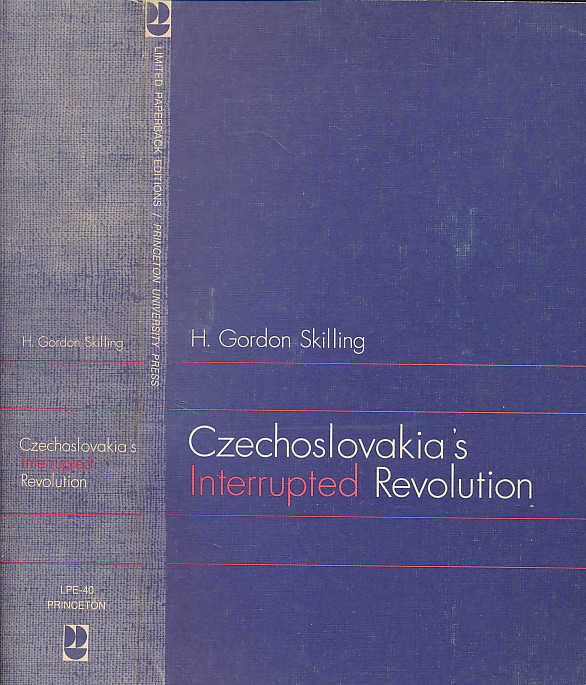Czechoslovakia s Interrupted Revolution
Izvorna cijena bila je: €30,00.€22,50Trenutna cijena je: €22,50.
Na zalihi
| Težina | 1632 g |
|---|---|
| Format | 16 × 24 cm |
| Autor | |
| Izdavač | |
| Mjesto izdanja | Princeton |
| Godina | 1976 |
| Broj stranica | 924 |
| Uvez | Meki |
| Stanje knjige | Vrlo dobro |
Czechoslovakia’s Interrupted Revolution By H. Gordon Skilling PRINCETON UNIVERSITY PRESS Copyright © 1976 Princeton University Press All rights reserved. ISBN: 978-0-691-10040-1 Contents Preface, xi, List of Abbreviations, xv, Part One. The Historical Setting, Chapter I. Communism and Czechoslovak Traditions, 3, Chapter II. The Dualism of Czechoslovak Communism: From Gottwald to Novotny, 21, Part Two. Stalinism In Decline, Chapter III. The Mounting Crisis, 45, Chapter IV. Science, Scholarship, and the Party, 90, Chapter V. The Political System Under Fire, 134, Chapter VI. The Fall of Novotny, 161, Part Three. The Politics of Change, Chapter VII. Prelude to Change, 183, Chapter VIII. Spontaneity and Consolidation, 196, Chapter IX. The Step-By-Step Strategy Challenged, 225, Chapter X. Reforms Amid Tension, 261, Chapter XI. The Storm Gathers, 295, Part Four. The New Model of Socialism, Chapter XII. A New Political System, 333, Chapter XIII. Rehabilitation and Justice, 373, Chapter XIV. Planned Market Socialism, 412, Chapter XV. Federalism and the Slovak Problem, 451, Part Five. Contending Political and Social Forces, Chapter XVI. Conflicting Tendencies in the Party, 493, Chapter XVII. Non-Communists and Public Opinion, 526, Chapter XVIII. Social Groups and Organizations, 563, Part Six. The International Context, Chapter XIX. A Foreign Policy With Its Own Face, 617, Chapter XX. The Reactions of the Ruling Communist Parties, 659, Chapter XXI. Military Intervention, 713, Chapter XXII. Resistance and Capitulation, 759, Epilogue. Dubcek’s decline and fall, 813, Conclusion: Reform, Revolution, or Counterrevolution?, 824, Appendices, 853, Bibliography, 891, Index, 899, CHAPTER 1 Communism and Czechoslovak Traditions Communist regimes have almost without exception repudiated the dominant traditions of their countries’ history and claimed to have established brand-new patterns of politics and society. At the same time they have sought to depict communism as a projection of the revolutionary and progressive elements of their national heritage and to incorporate these in the mythology of the new order. In most cases, as, for instance, Soviet Russia, the past thus rejected was autocratic and reactionary, and only selected radical traditions were regarded as the forerunners of communism. In Czechoslovakia, however, the dominant tradition was democratic, deeply rooted in the feelings of the people, and regarded positively by most Czechs and by many Slovaks. The communists, therefore, had to renounce the advanced and progressive features of the past, such as the legacy of Masaryk, since these were integral elements of the dominant tradition. In another respect, also, Czechoslovakia seemed to stand in stark contrast to other communist countries. The regimes have usually, willy-nilly, been affected and influenced, often unconsciously, by their own historical backgrounds, including those elements which were condemned. For a decade or more, Czechoslovak communism seemed to have been successful in erasing the dominant national traditions and to have escaped even their indirect influence. In the sixties, however, the forces of the past began once more to make themselves felt. National Traditions and the Communists The strongest traditions with which the Czechoslovak communists had to grapple were those that had evolved during the twenty years of the First Republic between the two World Wars. Created largely as a re
